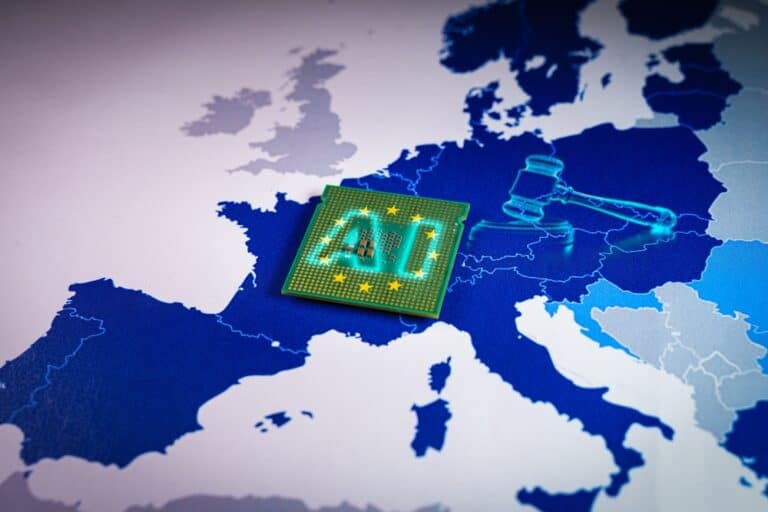Meta will not comply with the precursor to the European AI Act. Until the summer of 2026, compliance is not mandatory.
Before European legislation becomes actionable, many months or years pass. For example, the biggest part of the AI legislation will not be mandatory until Aug. 2, 2026.
Development is too fast, legislation too slow
The AI field develops extremely fast; just last week, during Inbound from HubSpot, we heard that AI’s computing power doubles every six months. Therefore, waiting two years is extremely long.
Europe hoped to intervene by having the leading AI developers participate in an AI Pact. By participating in the pact, developers are showing they are already willing to commit to the rules while they are not yet mandatory.
Meta does not participate (yet)
However, participation in the pact cannot be enforced. Meta recently announced that it will not yet participate in the precursor legislation. “We welcome harmonized EU rules and are currently focusing on our compliance work under the AI Act,” a spokesperson told Reuters.
It cannot be ruled out that Meta will still join the pact at a later date. Moreover, the company’s general attitude toward the legislation was never positive. The company’s multimodal AI models do not launch in Europe, and along with the Spotify CEO Mark Zuckerberg, Meta’s CEO, has expressed concerns in the past about the innovativeness of open-source AI under the legislation. That the company is now reluctant to sign the voluntary agreement immediately is, therefore, not a big suprise.
2026 final date
There are, however, exceptions to the 2026 effective date. AI systems that pose a hazard or extreme risk must comply with the legislation in February. General-Purpose AI models have one year, until August 2025.
Also read: Why Meta will keep its multimodal AI models out of Europe
